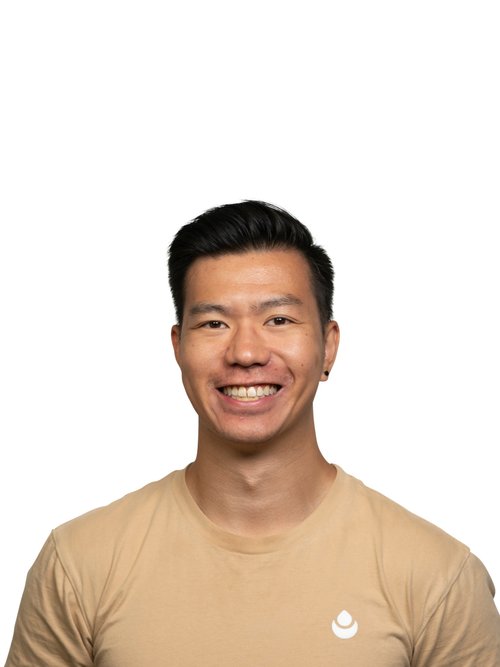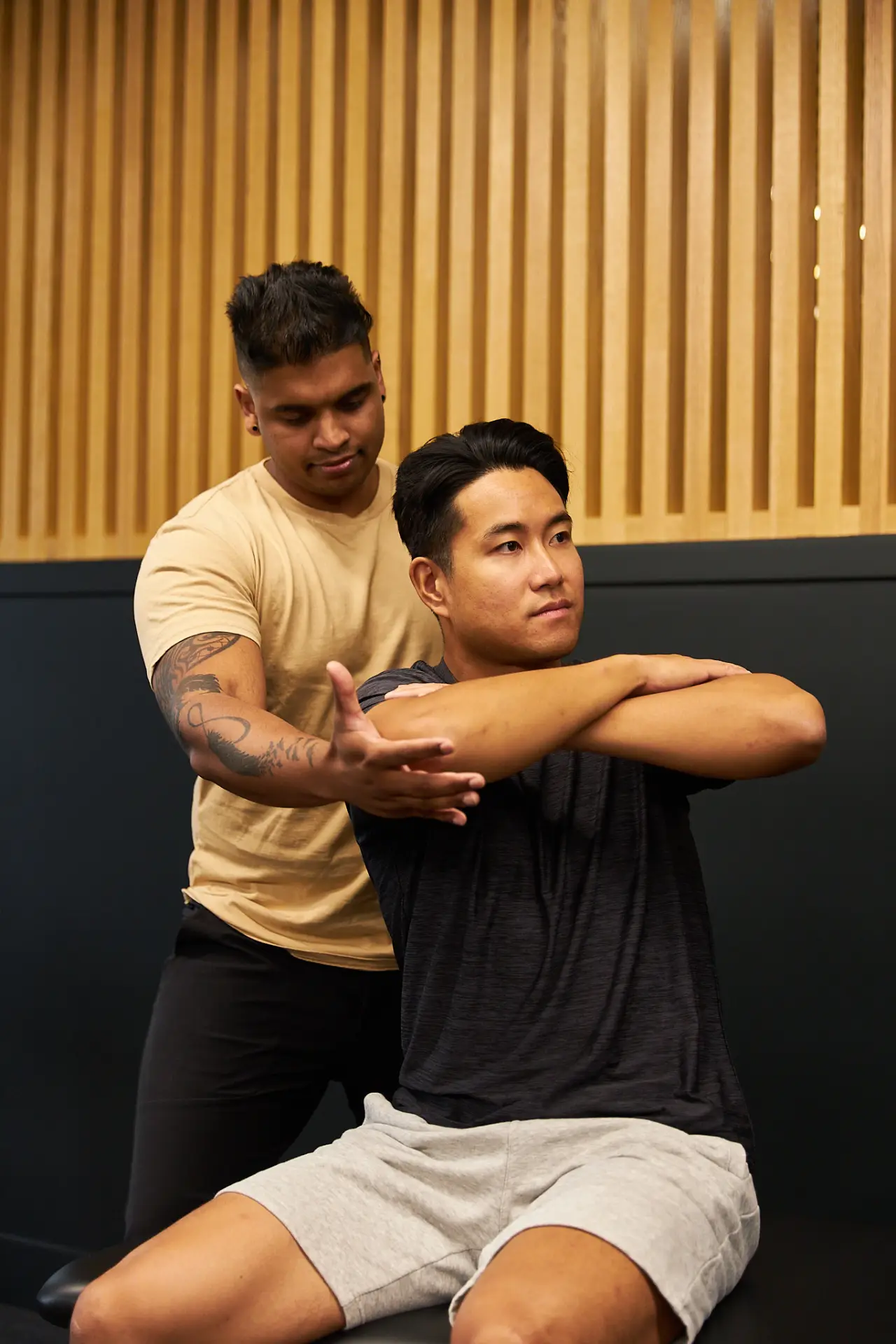
- Golf Assessment
Injury-Free Golf Starts Here
TPI Golf Physiotherapy Toronto, Trinity Bellwoods
Every AOM session, guided by our Longevity Model, is designed to help you find long-term solutions and live healthier, longer.
One Perfect Swing at a Time!
Play longer. Swing smarter. At Art of Mobility Toronto, TPI-certified golf physiotherapy is designed for golfers of all levels who want to move better, hit further, and avoid injury. This isn’t general physio—it’s golf-specific, swing-specific, and 100% tailored to your game.
Train like the pros do. Using the proven Titleist Performance Institute (TPI) model, we evaluate how your body moves in relation to your swing, identifying weaknesses, mobility restrictions, or asymmetries that could be holding you back—or setting you up for injury.
- Client Testimonials
"I lived with TMJ for four years—chronic jaw pain, headaches, and constant tension. I tried everything with little relief. AOM was the first place that looked beyond the pain to understand the root cause. Dr. Colby and the team assessed my posture, neck, and overall tension patterns. Their approach was different: holistic, targeted, and rooted in mobility and awareness. Within weeks, my symptoms improved dramatically. I finally felt heard, supported, and seen—not just treated. If you’re dealing with chronic pain and haven’t found answers, AOM is where your healing journey can truly begin."
- Gabriel Simmons
- Client Testimonials
"Before joining Art of Mobility, I was in constant leg pain and couldn’t correct my posture no matter what I tried. The team—Dr. Colby, Justin, and Christian—designed a personalized program combining hands-on therapy and specific exercises. In just a few months, not only did the pain disappear, but I was lifting weights without even feeling sore the next day. I’m now in the best shape of my life and finally understand how my body works. Their patience, care, and encouragement kept me going, and their deep knowledge made all the difference. AOM changed my relationship with movement forever."
- Heather Simpson
- Client Testimonials
"I came to AOM dealing with digestive issues and inflammation that no doctor had been able to fully solve. Working with Tanisha gave me a whole new understanding of my health. She created a tailored plan and helped me become more intentional with my habits. Then I started physio with Tharaniya to address chronic lower body pain. Her approach was not just clinical—it was fitness-informed, empowering, and deeply personal. With her help, I’m now moving pain-free and stronger than ever. AOM didn’t just treat my symptoms—they helped me reconnect with my body. This place is one-of-a-kind."
- Chadwick Stewart
- Client Testimonials
"After a miscarriage in 2023, I wanted to give myself the best chance at a healthy pregnancy. I started working with Tanisha, who took the time to deeply understand my body and goals. She reviewed my diet, prescribed targeted supplements, and created a plan to support fertility and egg quality. Just three months later, I became pregnant. Today, we’re cuddling our newborn baby girl—and I’m forever grateful. Tanisha was not only knowledgeable, but compassionate and empowering throughout the entire journey. I recommend her to anyone looking to take their health—and their future—seriously."
- Bianca Pang
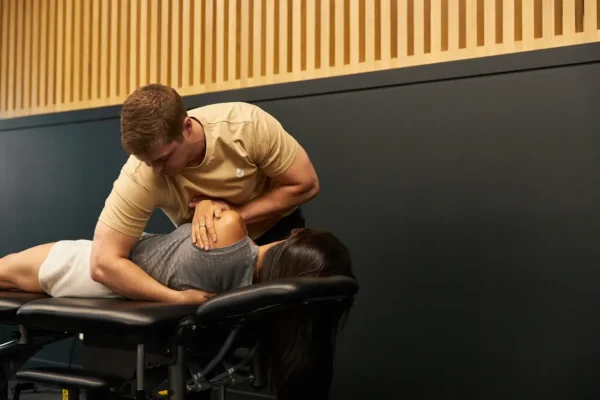
What Is TPI Golf Physiotherapy?
TPI Golf Physiotherapy is a specialized approach to performance rehab built around the biomechanics of the golf swing. It begins with a 16-point movement screen developed by the Titleist Performance Institute, which uncovers how your physical limitations impact your swing efficiency and consistency.
Our therapists then build a plan that targets key issues like hip rotation, thoracic mobility, core stability, or shoulder control—all critical for golfers. Whether you’re a seasoned athlete or weekend player, this approach will help reduce pain, enhance rotation, and add power where you need it most: on the course.
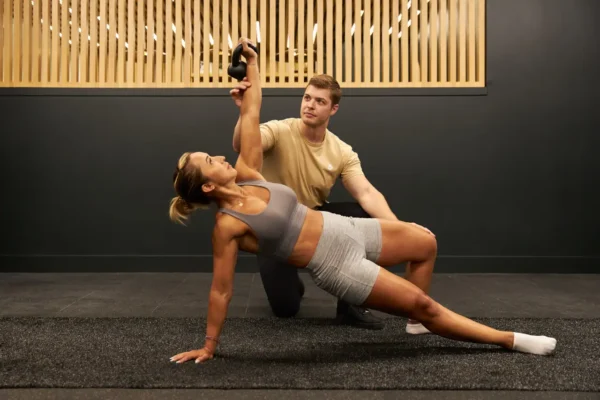
Our Approach to TPI-Based Rehab
We begin with a TPI screening that links your body’s movement to your swing mechanics. Then, we overlay those insights with a physiotherapy assessment to determine the root of any limitations. It’s not just “tight hamstrings”—it’s how they affect your drive, your follow-through, and your score.
Rehab is just the beginning. Our programs are built to not only address pain or injury but also develop rotational power, dynamic balance, and joint control specific to golf. The goal? Less restriction, more distance, and consistent performance season after season.
Benefits of Golf Physiotherapy:
- More efficient swing mechanics.
- Improved rotational strength.
- Greater flexibility and range.
- Lower risk of golf-related injury.
- Increased drive distance and control.
Conditions We Treat
- Back pain
- Elbow strain
- Hip stiffness
- Core weakness
- Rotator cuff
- Shoulder pain
- Wrist issues
- Knee discomfort
- Sciatica flare-ups
- Poor balance
- Postural issues
- Glute weakness
- Swing compensation
- Neck tightness
- Rib mobility
- Overuse injury
- Muscle imbalance
- Post-game recovery
Why Choose Art of Mobility in Toronto?
We’re more than a physiotherapy clinic. Art of Mobility combines sports science, strength coaching, and therapeutic care—all under one roof. Your golf rehab isn’t siloed—it’s built into a complete performance strategy that evolves as you do.
We understand golf as an athletic sport with unique demands on the spine, hips, and shoulders. Our TPI-certified therapists bring clinical insight and sport-specific knowledge to help you stay strong, swing clean, and lower your injury risk—whether you’re playing 9 holes or chasing the tour.
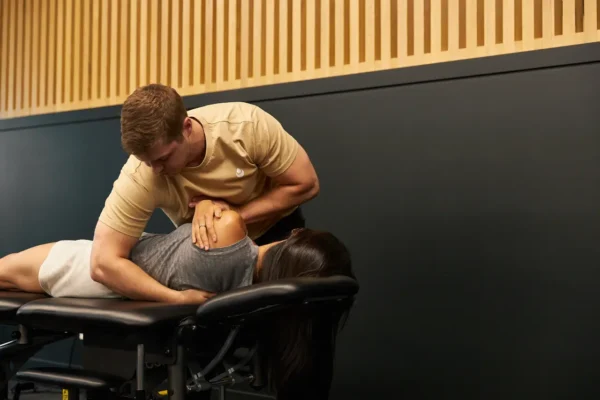
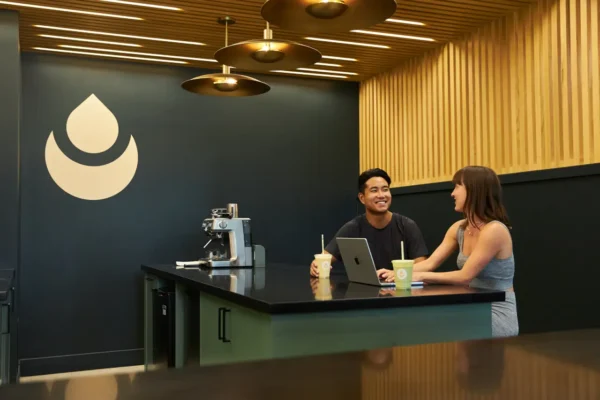
Ready to Play Better and Hurt Less?
Golf performance isn’t just about the club—it’s about the body swinging it. Join the growing number of golfers in Toronto using TPI golf physiotherapy to move better, drive further, and enjoy the game pain-free.
Book your golf assessment now at Art of Mobility and unlock the power in your swing.
Insurance Partners
We offer direct billing with most of the following providers (coverage varies by plan and province):
Areas We Serve
At AOM, we proudly collaborate with major insurance providers to serve you better. Contact us to learn more!
Available at Select Clinics.

Art of Mobility Physiotherapy Mississauga - Port Credit
125 Lakeshore Rd E #202, Mississauga, ON L5G 1E5, Canada

Art of Mobility Physiotherapy Toronto - Trinity Bellwoods
822 Richmond St W Unit 200, Toronto, ON M6J 1C9, Canada
TPI Golf Physiotherapy Toronto, Trinity Bellwoods FAQs
What Happens During My First Session?
Your first session includes a full movement screen based on the TPI model. We assess mobility, strength, and posture while observing how your physical limitations may impact swing mechanics. This helps us create a personalized program that targets key areas for injury prevention and performance.
You’ll leave with a clear plan of care, including targeted exercises and movement cues specific to your golf goals.
Is TPI Golf Physiotherapy Only for Professional Golfers?
Not at all. Golf physiotherapy is effective for recreational and beginner golfers, too. Whether you play weekly or a few times a year, your swing still demands coordination, balance, and mobility.
We tailor your rehab or performance plan to match your ability and objectives—whether that’s playing pain-free, improving control, or building a more powerful and sustainable body swing.
How Long Does It Take to See Results?
Most clients notice improvements in swing ease, posture, or pain reduction within 3–5 sessions. Long-term gains—like strength, stability, or increased drive distance—develop over time with consistency.
The more consistently you apply what we personalize for your movement plan, the more you’ll optimize results both on and off the course.
Can Golf Physiotherapy Help With Lower Back Pain?
Yes. Lower back discomfort is one of the most common golf-related complaints. Through targeted assessment and corrective exercise, we identify poor movement patterns and help redistribute forces away from the lumbar spine.
This reduces compression and strain while helping you generate power more efficiently during your swing.


